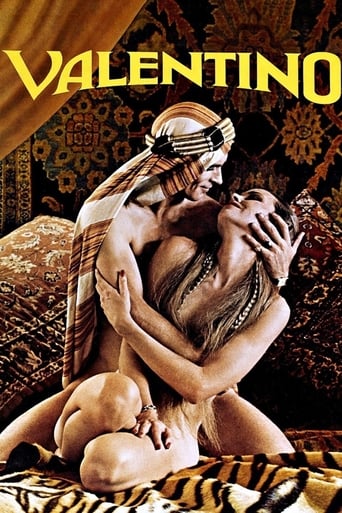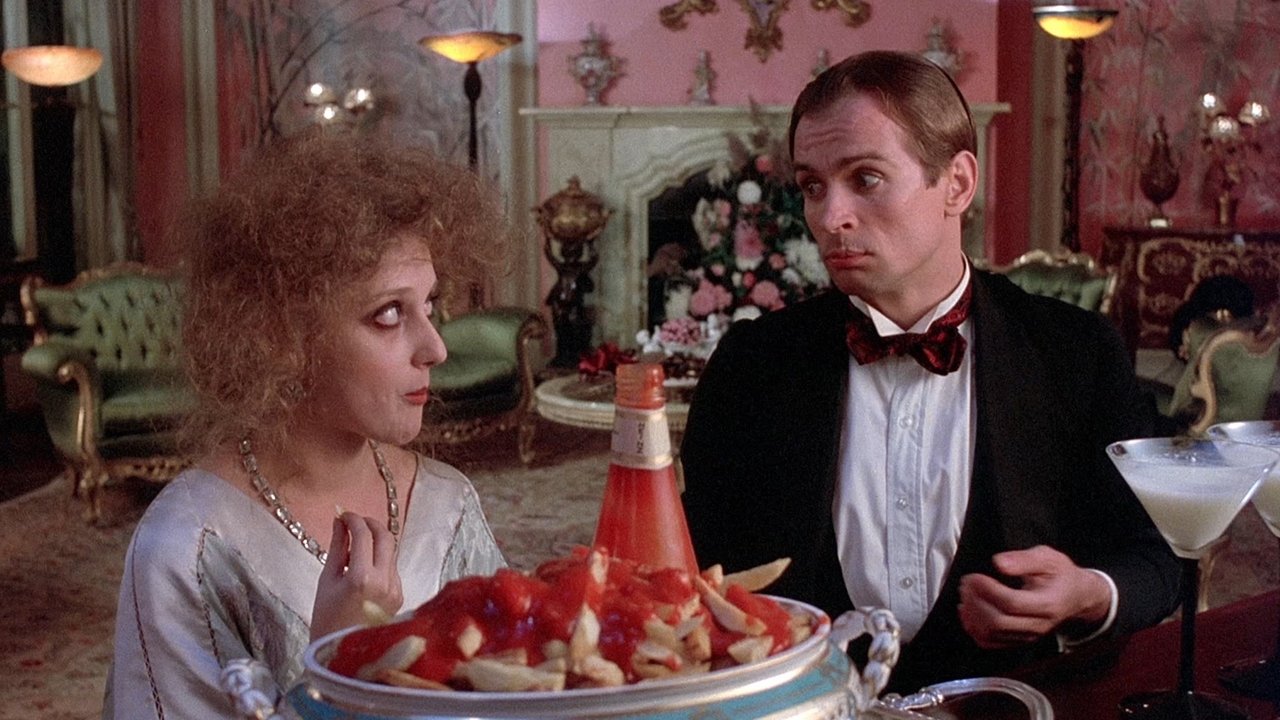ags123
Though he tried valiantly, director Ken Russell couldn't maintain the depth he brought to his biggest success "Women In Love." From that point on, excess took over at the expense of logic and coherence. Films like "Mahler," "Tommy," "Lisztomania," became increasingly messy. By the time "Valentino" came along, while still offering up a visual feast, Russell had become sloppy. The script is bad - none of the narrative is the least bit convincing. Rudolf Nureyev is not at fault here. He gamely subjects himself to all manner of humiliation and comes off pretty well. The same can't be said for the rest of the cast. Leslie Caron tries hard. It's Michelle Phillips' lack of acting ability that brings down the whole production. "Valentino" is worth a look by fans of Russell's visual style, but that's about all it's got to recommend it.
Ankhoryt
I saw this movie at home more than thirty years after it was first made, and without the background to appreciate the director and his style of directing, which frankly got on my nerves. I also dislike "biographies" which take wild liberties with the actual facts of their subject's lives.But oh, the sets! Oh, the wardrobe! And most especially, oh, Nureyev!! Now lost to us due to AIDS, international ballet star Nureyev did well in this movie, over-acting and under-acting apparently per the director's instructions. Of course, every dance scene is exquisite. (I flinched at the reviewer here who burbled that golly, he's a better dancer than Al Pacino! Yes, dear; a moment on Wikipedia would tell you why.) And, given who and what Nureyev was, the nude scenes are exquisite, too, and plainly show a great deal of acting ability (neither over- nor under- ) on his part. Alas, the beautiful seduction scene in the tent has *talking*. Ah, had they only shut up! The grumpy, intrusive dialog is acidic enough to stifle the eroticism of the encounter. For that scene, one could wish this movie about the silent-film era were silent itself.Trivia: compare his nude photo shoot scene with the two women to the costuming by Bakst for Nijinsky in "Afternoon of a Faun." (Google all that to see pics.) I felt terrible when I missed the revival of the Bakst costumes and Nijinsky's choreography when "AoaF" came to my area in the early 1990s; the photo session scenes in this movie made me feel that at least, I have seen the Faun. This means that the director did the work to reproduce the 1912 original wardrobe over a decade *before* the same exhausting work was done for the 1990's revival.The rest of the movie was essentially one long jangle and blare, with artsy flashbacks and an early stab at what I guess might be magical realism, or something else disjointed, recursive, and melodramatic. In any case, it was enough to alienate me and I never did get fully into the narrative thread (narrative snarl?) of the film. So, five stars - raves for the settings and wardrobe and Nureyev, and just "eh" for everything else.
moonspinner55
Ken Russell directed and co-authored this flagrantly useless biography of silent-screen legend Rudolph Valentino, adapted from the book "Valentino, an Intimate Exposé of The Sheik" by Brad Steiger and Chaw Mank; certainly the producers and actors associated with this film knew of Russell's penchant for the gross and bizarre, yet everyone seems to have jumped on-board blindfolded. It's a stiff and self-conscious circus, albeit one with an opulent 1920s production design. The essence of capturing a romantic hero of the movies on film has seldom come off (proof of that is the unsuccessful 1951 version of "Valentino" starring Anthony Dexter); here, Russian ballet star Rudolf Nureyev struggles with his Italian accent, struggles with his romantic partners, and really only looks comfortable with the dancing (an early scene featuring Valentino and Vaslav Nijinsky together on the dance floor is the picture's best moment). The impersonations of real-life players in Valentino's short life are grotesque caricatures, and the flashback conceit of female admirers recalling their associations with "The Sheik" after his premature demise is flabby and tiresome (and fails to pay off in any sort of narrative context). Ken Russell has never been very nimble with actors, but one expects more fireworks with this large cast (they are largely posed and wooden). Leslie Caron's nutty interpretation of famed actress Alla Nazimova gets some goosey laughs, and Seymour Cassel is always nice to have around as Valentino's manager, but the lead is too old for his role--and intensely uncharismatic on the screen. *1/2 from ****
st-shot
As in all of his biography films Ken Russell takes no prisoners. A series of warped biographies on composers (Mahler, Tchaikovsky, List)incensed more than entertained audiences and critics. Laced with dark humor, vibrant costuming and Russell's sardonic use of the composers works in conjunction with his colorful and outlandish compositions the films were visual feasts that bordered on character assassination. In Valentino, Russell comes to America to offer his take on silent Hollywood and its biggest star of the era, Rudolph Valentino. Russell is relentless in his depiction of the exploitative and greedy nature of producers who in the opening scene stand over Valentino's body lamenting financial loss. Russell also works over newspaper reporters, actresses, Valentino's ex-wives and a comedian known as Fatty (Arbuckle?). Dancer, Rudolph Nureyev is no actor but as Valentino his poorly pronounced flatly emoted English fits and contributes to his sympathetic character. As in all Russell films there are scenes that are lush and grandly staged (ably assisted by ex-wife, Shirley Russell's original and over the top costuming) such as Leslie Caron's entrance at the funeral home, the fight sequence where ball room dancing takes place in between rounds, the producer with the pet gorilla in his living room, and a cult fan gathering outside Valentino's mansion. This film quickly sank from sight when it was released and thirty years later consensus remains the same. I personally believe however that Valentino is a sharply drawn dark humored satire that spits cynicism at two institutions (Hollywood and the media) that it depended heavily on for its success. Valentino succeeds on every level and that was probably its problem.


 AD
AD





